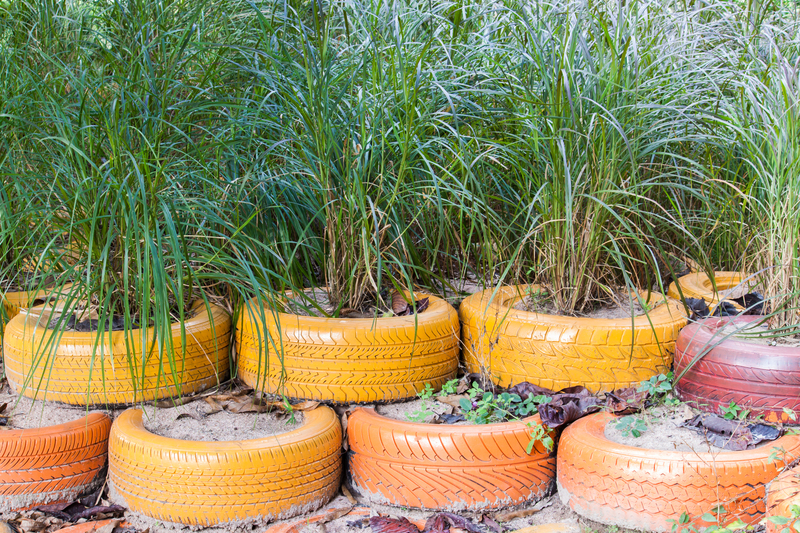Practical Ways to Cut Bulky Waste Disposal Costs
Disposing of large or bulky waste--like furniture, appliances, mattresses, and construction debris--can be expensive and inconvenient. However, businesses, landlords, and homeowners don't always realize there are many cost-effective strategies for bulky waste disposal. This article uncovers practical ways to save money while responsibly getting rid of your large unwanted items.

Understanding Bulky Waste
Before jumping into ways to reduce bulky waste disposal costs, it's essential to understand what bulky waste is. Generally, bulky waste refers to items that are too large or heavy to be removed by regular waste collection services. Examples include:
- Old sofas and chairs
- Beds and mattresses
- Large kitchen appliances (fridges, washing machines)
- Renovation debris (bathroom suites, cupboards)
- Garden furniture and sheds
Since these items require special handling, fees can quickly add up. But don't worry--there are plenty of ways to approach bulky waste removal that won't break the bank.
1. Sell or Donate Usable Items
Maximize Value by Repurposing
One of the best ways to reduce disposal costs is to avoid them altogether. Before throwing big items away, determine if they can be sold or donated. Many charities accept furniture and appliances in good condition, and may even collect them for free.
- Sell on marketplaces: Advertise on local marketplaces like Facebook, eBay, Gumtree, or Craigslist. Even worn furniture might sell for parts or upcycling projects.
- Charity pickup services: Organizations such as The Salvation Army, British Heart Foundation (UK), or Habitat for Humanity (USA) offer free bulky item collection.
- Community giveaways: Post on freecycling groups or neighborhood forums to find takers for your items.
By finding a new home for unwanted items, you avoid landfill charges and possibly make some extra cash--a true win-win!
2. Use Local Council Bulky Waste Collection
Investigate Affordable Public Services
Most municipalities provide bulky waste collection services at lower fees than private companies. Some councils even have free pickup days or discounted rates for residents. Visit your local government's website to learn about:
- Booking procedures for large waste collection
- Allowed item types and volume limits
- Fees and available subsidies (for seniors or low-income residents)
Tip: Combine items with neighbors or wait for special collection days to maximize savings.
3. Rent or Share a Skip Smartly
Optimize Container Use
If you have significant large waste disposal needs (e.g., during renovations), skip hire offers convenience but can be costly. You can cut skip rental costs by:
- Sharing a skip with neighbors or friends--split costs!
- Booking the smallest size needed
- Comparing rates and reading the fine print (ask about weight limits and overage fees)
- Filling skips efficiently--break down items to eliminate air gaps
Combining loads and careful planning minimizes your outlay while removing your bulky rubbish.
4. Responsible Dismantling & Sorting
Reduce Volume, Cut Costs
Most waste collection services (especially skips or man-and-van collectors) charge by volume. To get more for your money:
- Dismantle furniture: Break beds, wardrobes, and sofas into flat packs.
- Remove non-recyclables: Sort metal, wood, and electronics for easier recycling or disposal.
- Avoid mixing types: Keeping general waste separate from hazardous or recyclable material can reduce landfill costs and possibly earn rebates from recycling centers.
Tip: Many bulky waste recycling centers accept separated recyclables at a lower cost or even for free.
5. Use a "Man with a Van" Service
Flexible, Often Cheaper than Skips
Professional clearance teams or "man with a van" services can undercut skip costs and provide labor. This option is especially cost-effective for:
- Flat block clearances
- Items stored indoors (no need for loading skips on the street)
- Mixed items and awkward-shaped furniture
Always confirm that any contractor is licensed--fly-tipping fines can land on you if your waste is dumped illegally.
6. Do It Yourself - Self-Haul to the Tip
Direct Drop-Off Saves on Collection Fees
If you have suitable transport, dropping off items at your local recycling center or tip is often free or much cheaper than professional pick-up. Follow these steps:
- Check your local tip's opening hours and item restrictions
- Borrow or rent a van for large loads--plan routes to avoid repeated trips
- Sort and compact waste ahead of time
Pro tip: Many facilities do not accept commercial or hazardous waste, so read the rules before you head out.
7. Explore Producer Take-Back Schemes
Let Retailers Shoulder the Burden
For items like old mattresses, electricals, and white goods, check if the retailer offers a disposal service when you buy the replacement. Large chains often run "take-back" schemes, included free or at low cost. This approach:
- Ensures responsible recycling
- Saves transport and disposal time
- Reduces your large waste removal bill
Look for collection options at checkout, especially when purchasing online.
8. Organize a Community Clean-Up
Combine Resources, Slash Individual Costs
If you and neighbors face similar bulky junk disposal needs, consider:
- Pooling funds to rent a large skip together
- Booking a joint "man with a van" service
- Organizing a recycling drive to collect reusable items
Local councils and environmental nonprofits sometimes sponsor or subsidize these collective efforts, lowering your bill further.
9. Carefully Avoid Legal and Environmental Penalties
Stay Compliant, Avoid Fines and Unexpected Costs
Improper or illegal bulky waste management can result in substantial fines and environmental harm. Always:
- Use licensed and registered waste carriers
- Obtain receipt or transfer note for any collected items
- Never mix hazardous materials with your bulky waste
Confirming your collector's credentials may take a few extra minutes, but it guards against expensive mistakes down the road.
10. Minimize Bulky Waste Generation
Prevention Beats Cure!
The cheapest way to deal with unwanted large items is to produce less of them in the first place. Consider the following eco-friendly strategies:
- Choose modular, long-lasting, or multi-use furniture
- Repair or upcycle rather than replace where possible
- Buy only what you truly need
- Rent or borrow items for short-term needs
Adopting a "reduce, re-use, recycle" mindset not only shrinks your future bulky waste removal expenses, but also benefits the environment.
Additional Tips for Budget Bulky Waste Disposal
- Negotiate bulk deals: If managing properties or a business, ask for a contract discount with local waste carriers.
- Compare quotes: Seek out at least three price estimates for collection or skip hire.
- Time your clear-out: Some companies offer off-peak or off-season discounts.
- Take advantage of local promotions: Councils occasionally have free bulky waste collection weeks--stay updated via newsletters or community boards.
- Join local online groups: These are great for finding people interested in upcycling or collecting items directly from your home.

Frequently Asked Questions about Bulky Waste Disposal Savings
How can I estimate my bulky waste removal costs?
Typical rates vary depending on volume, item types, and your location. As a general guide, council bulky waste charges can range from ?20 to ?60 per item, skip hire from ?100 to ?300 per week, and private clearance services from ?40 for small jobs upward. Always ask if the price is based on item count, weight, or cubic yardage.
What items are not accepted in bulky waste collections?
Hazardous materials (paints, chemicals, batteries), liquids, car parts, medical waste, and commercial construction debris are rarely accepted. Check with your provider for their prohibited list to avoid extra charges or refusals.
Is it possible to recycle all bulky waste items?
Not all items are recyclable, but many bulky donations--such as white goods, metal bed frames, and wooden furniture--can be recycled or repurposed. Most local recycling centers have special zones for electrics, wood, or metals; always separate before disposal.
What should I do if my waste collector fly-tips my items?
If an unlicensed collector dumps your items illegally, responsibility (and fines) can be traced back to you. Always verify licenses with your local council and demand documentation. If in doubt, report suspicious operators.
Conclusion: Save Money and the Environment with Smarter Bulky Waste Disposal
Cutting bulky waste disposal expenses is not just a matter of finding bargains--it's about approaching waste management with creativity and responsibility. Prioritize reuse and donation, leverage affordable public services, optimize logistics, and always stay on the right side of the law. By following the strategies outlined in this comprehensive guide, you'll save money, reduce hassle, and support a cleaner planet.
Got more tips for cutting bulky rubbish removal costs? Share your insights in the comments below and help build a resource for smarter, greener waste solutions!